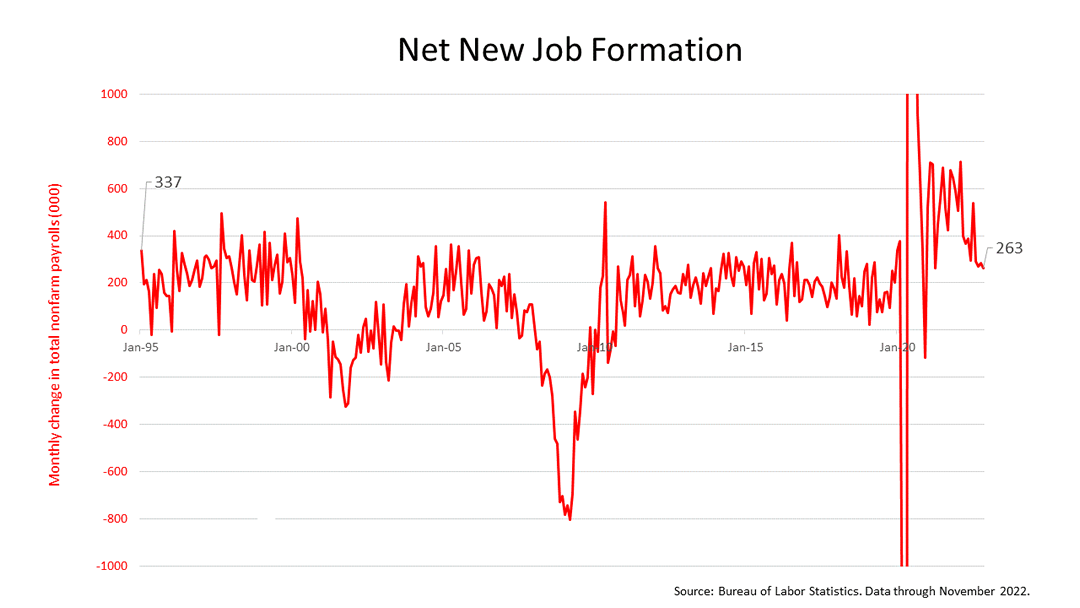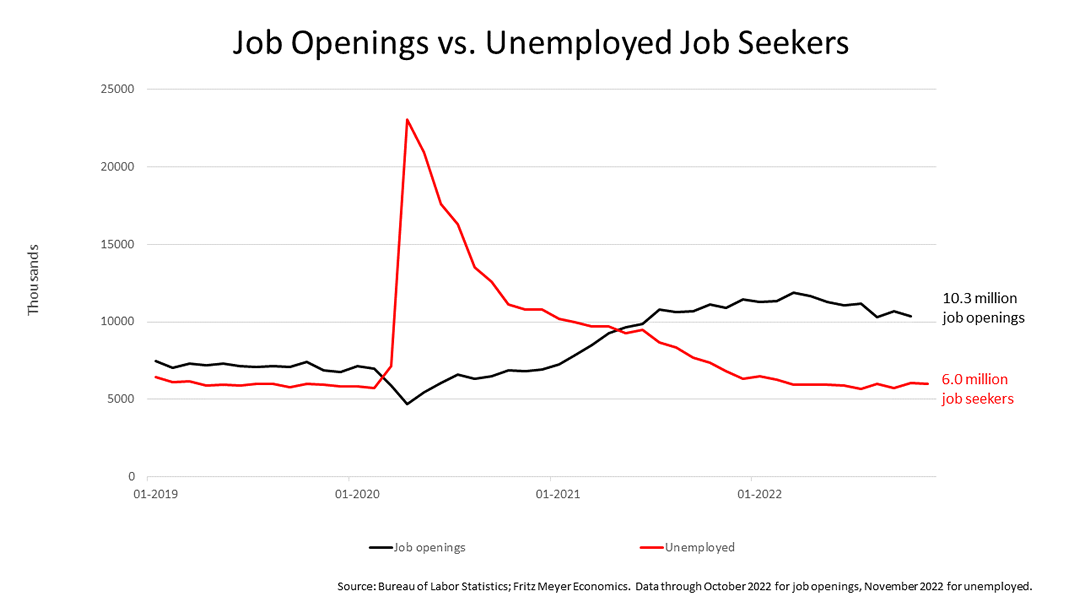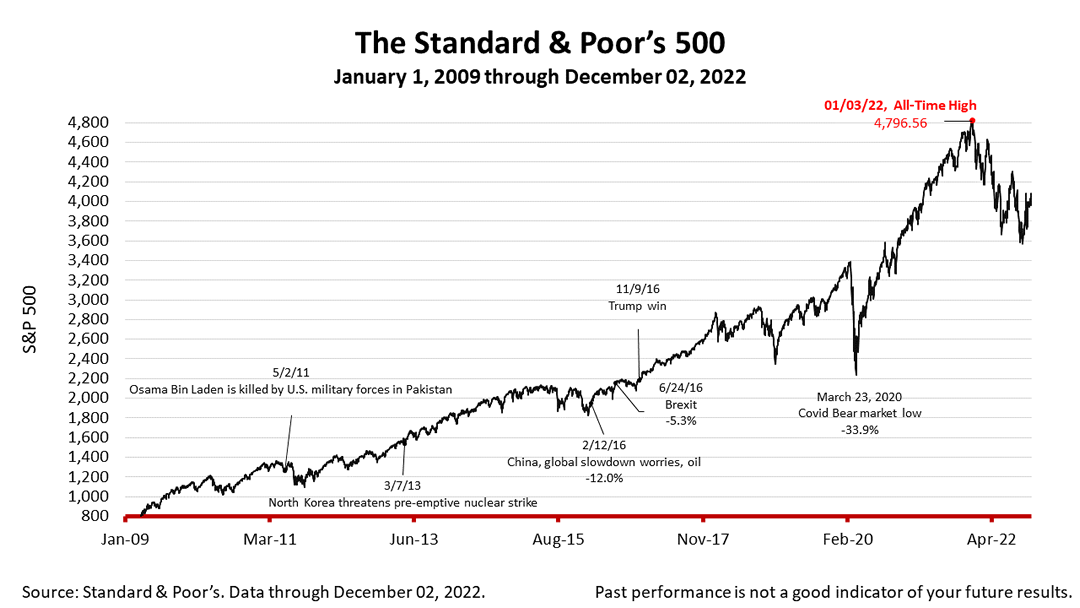
The U.S. created 263,000 new jobs In November, despite six rate hikes implemented since March by the nation’s central banker to slow economic growth. The rate of job creation was 30% higher than economists had expected. For investors, it means that the Federal Reserve System, the nation’s bankers, have no choice but to continue raising lending rates for months. They have to stop job growth because it puts upward pressure on wages and worsens inflation. 
Job openings vastly outnumber job seekers. The pandemic led many Americans in their 60s to retire earlier than in previous decades. More Americans in their 30s, 40s, and 50s also dropped out of the U.S. labor force – those between 16 and 65. In addition, from the beginning of the Covid-19 pandemic in March 2020 till late 2021, international immigration flows to the US decreased significantly, according to Giovanni Peri, Professor of Economics at the University of California, Davis and the Director of the Global Migration Center The U.S. labor force has a shortage of about 3.5 million workers, Fed Chair Jerome Powell said in a speech on Wednesday. The shortage of qualified applicants for jobs will continue to put pressure on wages and will take time for the nation’s leaders to work out. Wage inflation is the problem. 
With inflation at a 40-year high in 2022, the Fed chair said Wednesday that supply chain bottlenecks are easing. However, rising prices of services, like dining out, building a house, and health care, as we predicted months ago, is quickly becoming the main cause. Raising interest rates to slow the U.S. economy is a crude tool. It’s like trying to bowl a strike on an alley the size of a football field on a windy day. But it is the main tool of the Fed. The lag time for hikes to take effect and shifting crosscurrents means this process will take time. 
The S&P 500 stock index closed Friday at 4,071.70, down one-tenth of % from Thursday, despite the bad news that the economy is creating too many jobs and that this will complicate the government’s ability to slow the economy and stop inflation from becoming entrenched in the American consumer’s psyche. The S&P 500 was up +1.13% from a week ago. The index is up +81.98% from the March 23, 2020 bear market low and 15.11% lower than its January 3rd all-time high. ​ The Standard & Poor's 500 (S&P 500) is an unmanaged group of securities considered to be representative of the stock market in general. It is a market-value weighted index with each stock's weight proportionate to its market value. Index returns do not include fees or expenses. Investing involves risk, including the loss of principal, and past performance is no guarantee of future results. The investment return and principal value of an investment will fluctuate so that an investor's shares, when redeemed, may be worth more or less than their original cost. Current performance may be lower or higher than the performance quoted. Nothing contained herein is to be considered a solicitation, research material, an investment recommendation, or advice of any kind, and it is subject to change without notice. Any investments or strategies referenced herein do not take into account the investment objectives, financial situation or particular needs of any specific person. Product suitability must be independently determined for each individual investor. Tax advice always depends on your particular personal situation and preferences. You should consult the appropriate financial professional regarding your specific circumstances.
The material represents an assessment of financial, economic and tax law at a specific point in time and is not intended to be a forecast of future events or a guarantee of future results. Forward-looking statements are subject to certain risks and uncertainties. Actual results, performance, or achievements may differ materially from those expressed or implied. Information is based on data gathered from what we believe are reliable sources. It is not guaranteed as to accuracy, does not purport to be complete, and is not intended to be used as a primary basis for investment decisions.
This article was written by a professional financial journalist for Advisor Products and is not intended as legal or investment advice. |